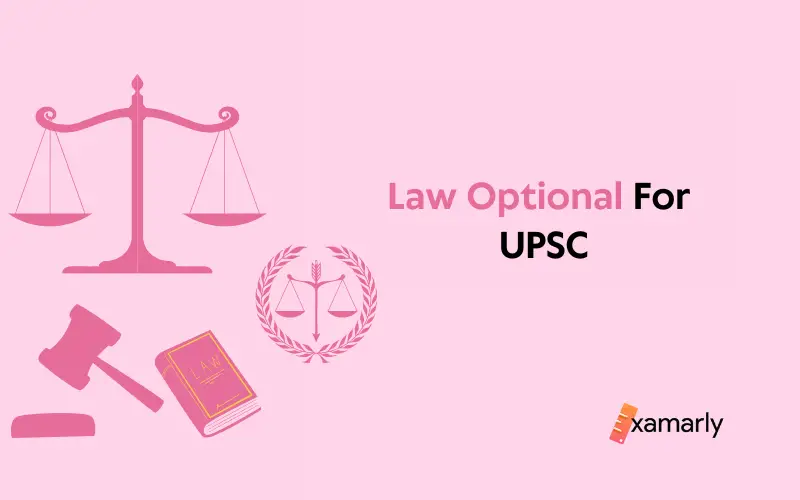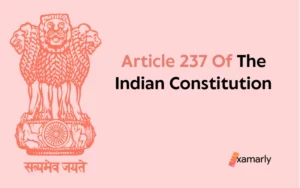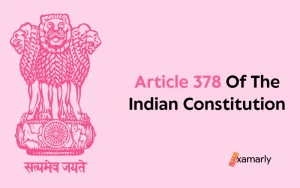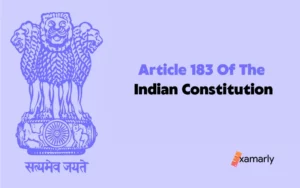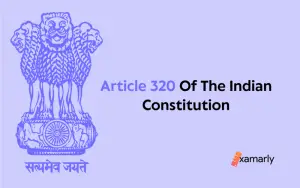One of the most common questions that has been pondered upon for a while and is boggling the mind of so many UPSC aspirants is that whether or not they should opt for law optional for UPSC.
The decision can be challenging, as these optional subjects are the deciding factor for the positive visibility in the merit list. Additionally, it is the only section in which the UPSC allows the candidates to select a subject of their choosing. Therefore, it is crucial to choose wisely at this point.
As we go by the recent trends, the percentage of people choosing Law-optional has increased owing to many factors such as comparable syllabus with GS papers, high scoring, less syllabus and high success ratio, as discussed in the subsequent headings.
Moreover, non-Law graduates also choose Law as they feel the subject is a high scoring optional as compared to other subjects.
This article will help analyze the different aspects of Law optional for UPSC.
- Comparison/Similarity With Other Optional Papers
- Advantages
- Mastering The Subject From Basics
- Importance Of Academic Background
- What Time Duration Is Required For Preparation?
- Overlapping Syllabus With GS
- Help With Essay writing
- Help In Interview
- Disadvantages
- Recent Toppers Of UPSC CSE With Law Optional For UPSC
- Data/Scores Available
- Standard References
- Conclusion
- FAQs
Comparison/Similarity With Other Optional Papers
Law is a subject that significantly affects one’s chances of success in the UPSC Prelims and Mains. Some individuals might believe that Law is a specialized subject that should only be studied by Law students, much like medical science.
However, graduates of any field can study and understand Law and score well in the exams. Even non-Law graduates now prefer the Law optional for UPSC.
Its popularity is because of the vast similarity between General Studies and Law on the UPSC Syllabus. As a result, studying for one subject pays off in preparation for another, boosting the likelihood of success.
GS Papers 2 and 3 and Essay writing share several similarities with the Law-Optional. As we go by the syllabus, more than half of it is directly related to Law-governed topics.
Likewise, it greatly aids in the presentation and articulation of ideas in a more organized manner. For instance, students can develop creative thinking by writing a great deal of material precisely.
Consequently, choosing Law as an optional paper provides a competitive advantage by covering about half of the required papers.
Advantages
Studying Law Optional for UPSC can have many advantages. Apart from having an overlapping syllabus with GS Papers, this optional has additive advantages-
- Small Syllabus:
- The syllabus is Relatively Small in Size.
- More than half of the syllabus is covered by just 7 major Laws, viz, International Law, Constitutional Law, Administrative Law, Criminal Law, Tort Law, Contract Law, and special business and economic Laws are among the most important Laws.
- The rest are smaller Laws that are simple to understand and do not contain many questions in exams.
- Moreover, the Code of Criminal Procedure (Cr.P.C.), the Civil Procedure Code (CPC), and the Evidence Act, which form a considerable part of the Judicial Services Exams are not a part of Law-optional papers, thereby favouring non-Law graduates.
- A scoring subject:
- The syllabus of Law-optional is finite. As a result, aspirants can revise the topics in a lesser time, thereby increasing the probability of getting better grades with a thorough and concentrated study of the curriculum.
- Success Rate is high:
- In terms of success rates, Law-optional paper has continuously ranked among the top optional topics. Even students from non-legal backgrounds have scored a single-digit rank with Law optional for UPSC.
- Overlapping syllabus:
- Particularly in the areas of polity and constitution, there is considerable overlap with the GS papers, namely 2 and 3. Important subjects for the GS papers include governance issues, RTI, citizen-official interactions, the use of discretion, and the interplay between state organs.
- Additionally, it significantly aids in producing better essays and responses for the GS-IV assignment on ethics.
- Nearly half of the compulsory paper can be completed with just the law optional.
- Writing abilities:
- By studying Law, one can get enhanced writing ability. This is true since legal writing is one of the most complicated tasks because of the terminology, expression and keywords.
- Since Optional papers provide less time to aggregate the thoughts, this develops into one of the best-gained skills for the candidates with a Law-optional and greatly aids them in all of their response crafting for all of the Mains examination papers.
Law is grounded on common sense and teaches people to think in different ways.
It challenges one to ask relevant questions and look for solutions in a convincing manner, aiding in the development of critical thinking skills.
This results in improved keypoint communication in both written and conversational media.
Mastering The Subject From Basics
It is very important to have a command of a subject that can be an influencing factor in deciding the merit. On the one hand, where Law graduates find the optional preparation comparatively easy, non-Law graduates need to put in extra effort to understand some terminologies or vocabulary.
However, both require a solid preparation strategy to crack one of the toughest exams in India. But how to build up a plan? Let’s see.
- Firstly and most importantly, aspirants should have proper knowledge of the syllabus. Awareness of a detailed syllabus is crucial as then you can know what exactly to study. Likewise, one can look for the weightage of a particular topic and study accordingly.
- Aside from Polity, there will be other parts of the UPSC law optional syllabus that you are already familiar with, such as Alternative Dispute Resolution (ADR), Judicial Review, Trial by Media, etc. You may have already encountered some of these acts in your GS paper syllabus.
- Law students can refer to the learnings of graduate school for better preparation since the syllabus is comparable.
- It is advised to study the previous year’s question papers as they help in interpreting the questions most in demand. It will also assist in determining how well you have studied the subject and the requisite level of study. Therefore, do not skip this step at any cost.
- In continuation with the above point, the aspirants should prioritize their studies following the current pattern and trends of questions asked in the exam.
- This could be challenging for non-Law graduates. However, they can always refer to standard books in-case they get stuck somewhere.
- Writing sample responses to questions from the last few years has proved a significant step in preparation. Lastly, students should give full-length mock tests to receive insightful feedback on their performance.
- Keep notes precise yet effective for a proper and quick revision in a short time.
- Aspirants should keep themselves updated with the most recent legal developments in the Law area.
- Start preparing for the Union Public Service Commission exam beforehand, i.e., from college time.
Importance Of Academic Background
There is no doubt in the fact that aspirants with a Law background have many more advantages than those of non-Law graduates.
The advantage is in the terms of better understanding of the syllabus, already prepared graduation notes, and good with terminologies and vocabulary.
All these factors do contribute to easy learning for a student with a legal background.
However, one must not assume that the Law-optional is tough for non-Law graduates. Not at all. Even Law students need to give an equal share of time and effort to crack the exams.
Even recent studies have shown the percentage of students taking Law as an optional paper to be higher than in previous years, and this percentage includes non-Law students as well.
Opting for Law optional for UPSC has many advantages as discussed above. Moreover, engineering, commerce, science and arts graduate have acquired some of the skills related to the Law syllabus during their graduation years.
For instance,
engineers know how to apply their reasoning skills, which can help answer the case-type questions in UPSC. The same goes for a science graduate.
Arts students have a sound knowledge of polity and history which they can use in constitutional Law.
A graduate in commerce must have studied the Laws of contracts, especially those about negotiating and selling goods.
They will find Paper II to be simple. Students of commerce typically have a strong understanding of economics, particularly the operation and operation of financial institutions.
Hence, every field graduate can study Law optional for UPSC and score well.
What Time Duration Is Required For Preparation?
There is no fixed time duration for the preparation of one subject. But on average, it requires 4-6 months to prepare for Law optional for UPSC.
Each aspirant’s intellect is different, and grasping power is different, so the time taken by one individual can differ from another. But every aspirant should not give all the time preparing only one topic.
For effective study preparation, aspirants should divide their time for a particular topic within the syllabus. Frequent revisions and attempting previous year questions are also necessary for better preparation.
Overlapping Syllabus With GS
The syllabus of Law optional vastly overlaps with that of GS Papers 2 and 3.
- GS paper-2 and Law-optional overlapping-
- The GS paper-2 overlaps the Law paper the most. There are several themes in the section on politics and government that correspond to the Law paper.
- For the Law-Optional, the majority of Constitution-related issues necessitate in-depth research, which makes the Polity and Governance in General Studies paper much simpler to complete.
- The major portion in the Law Optional paper-1 is covered by Constitutional Law and Administrative Law. Some of the topics from GS Paper-2 are covered in the final section under International Law.
- Therefore, anyone who had Law-Optional and had studied for Paper-I could have easily completed the majority of GS Paper 2 without additional effort.
- GS paper-3 and Law-Optional overlapping-
- Environmental Law, which deals with disaster preparedness and management, sustainable development, and international Law, which focuses on international economic organizations like the IMF, WTO, and World Bank, among others, are all included in the Law-Optional syllabus and are also covered in GS Paper 3 of the main exams.
- Similarly, Optional Paper II’s discussion of the Law related to intellectual property rights (I.P.R.) Laws would aid in addressing some crucial topics of GS Paper-3.
Help With Essay writing
Choosing the aw-optional for UPSC, not only helps cover the syllabus of GS papers but also assists in essay writing.
In the past five years, Essay Paper has consistently assigned essay subjects that, either directly or indirectly, are connected to some aspect of Law.
Even when writing about social issues, the applicant must discuss the constitutional or legal implications of the issue to elevate the quality of the response and make it distinguish itself from the rest.
Help In Interview
There is no specific technique or preparation that is wanted for an interview. The interview is typically the simplest part of the procedure for a law student because the interviewers are only looking for the candidate’s confidence level and language skills, both of which are strengths shared by the majority of law students.
Disadvantages
The Law-Optional may have a few drawbacks for non-Law graduates.
- It is rather difficult for students from different backgrounds to understand certain legal terms. As a consequence, they struggle to answer some questions.
- Also, vocabulary can be a contributing factor. Students might need coaching to fully understand the in-depth knowledge of the subject and the terms associated with it.
Recent Toppers Of UPSC CSE With Law Optional For UPSC
In the recently released 2021 UPSC results, Jaspinder Singh received an AIR 33 and chose law as an optional subject.
Additionally, with Law-Optional in her Mains, Shraddha Gome earned an AIR 60 in 2021. Saumya Sharma earned AIR 9 in 2017. In her Mains exam, she selected Law as an optional subject.
Along with her, top performers who chose Law-Optional for their Mains test included Neha Jain, Tapasya Parihar, Preetesh Raman Singh, and Jayantika Singh.
In 2014, Paramvir Singh earned an AIR 29 while taking law as an elective.
Sakshi Sawhney obtained an AIR 6 in 2013 with Law-Optional, while S Divyadharshini won the competition in 2010 with an AIR 1 and Law-Optional.
Data/Scores Available
Around 200 to 250 applicants often choose the law option for the IAS mains exam. In 2017, among the disciplines chosen by 100 or more students, 14.1% of successful applicants had chosen Law, followed by Commerce.
In the past few years, the fondness for Law-Optional has increased among students from various backgrounds.
Related – Law Optional Syllabus For UPSC
Standard References
Listed below are some of the references aspirants can take help from. These are considered standard books, hence, will make the aspirant’s preparation easy.
- Constitutional Law- V.N Shukla
- Indian Constitution Law- M.P Jain
- International Law- S.K Kapoor
- Administrative Law- I.P Massey
- Law of Crimes- P. S. Atchuthen Pillai
- Law of Torts- R.K. Bangia
- Law of Mercantile- Avatar Singh
- Indian Penal Code- K.D. Gaur
Conclusion
UPSC is the most difficult to crack, and with wrong optional subject, it becomes more difficult. Therefore, it is always advised to pick the optional paper by analyzing the latest trends in success ratios.
Law is one of the subjects that most students find easy to understand. Not only Law graduates but also non-graduates in Law are choosing Law as an optional subject.
The Law optional paper consists of two papers having the same format of 250 marks. While Paper 1 majorly consists of topics such as Administrative Law, Constitutional Law and International Law, Paper II deals with Criminal Laws, Contract Laws, Tort Laws and Recent Legal Developments.
The syllabus of Law-optional is very limited and thus easy to cover. Apart from this, the syllabus overlaps with GS papers 2 and 3. Such similarity is an added advantage in the preparation.
Aspirants are only required to give their full attention to the syllabus, exam pattern and recent developments in the area of Law.
Always have an effective preparation strategy, and remember to go for quick revisions of the topics each day to study better. 2-3 times revision before giving a mock test is also helpful.
Many students are discouraged from choosing Law-optional because of misconceptions and misguided ideas about the discipline. However, the benefits greatly outweigh the difficulties, and a sound plan from the outset can keep the study plan on track and ensure acing the test.
See Also – Law as an optional in UPSC
FAQs
Is Law-Optional good for UPSC?
Choosing Law as an optional paper for CSE Mains can be helpful while preparing for compulsory papers such as GS. This optional subject has a high success rate and is chosen by many candidates.
Can non-Law graduates choose Law as an optional paper?
Definitely yes. As per analyses of the past few years, non-Law graduates are taking Law as an optional subject because of the finite and overlapping syllabus with GS Papers and also owing to high success rates.
Which GS Papers have a similar syllabus to the Law-Optional paper?
GS Papers 2 and 3 have several similarities with the syllabus of the Law-Optional paper.


